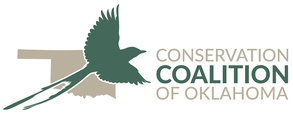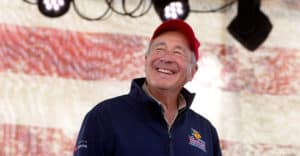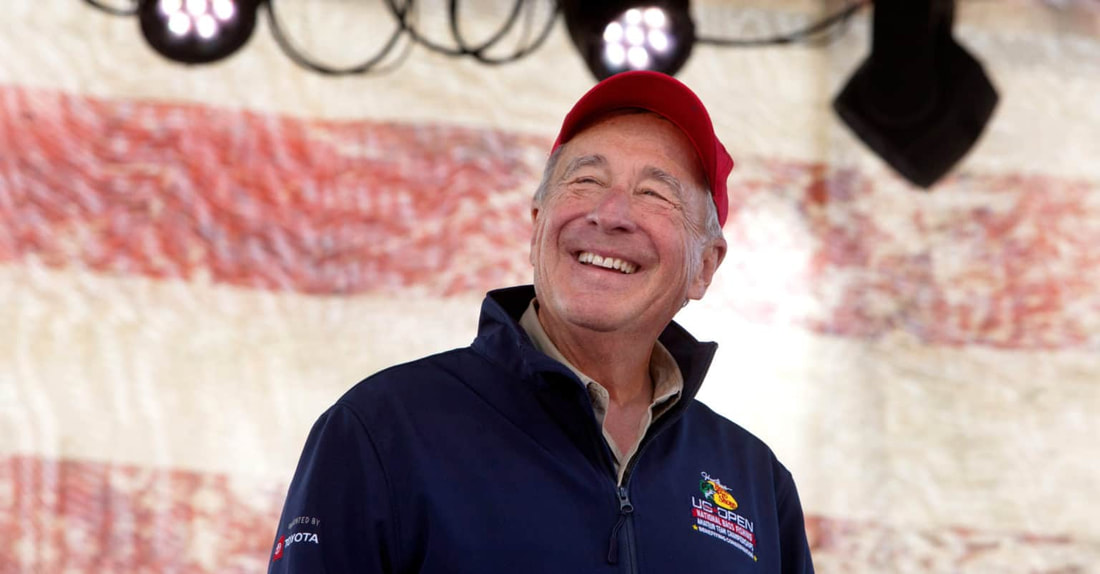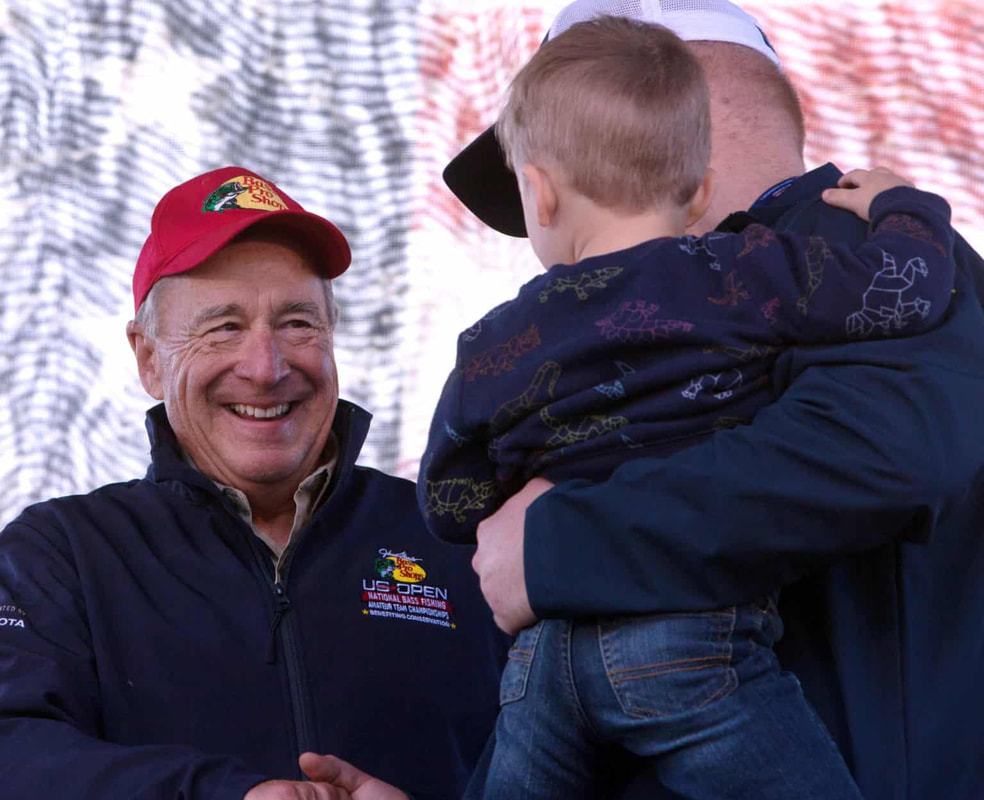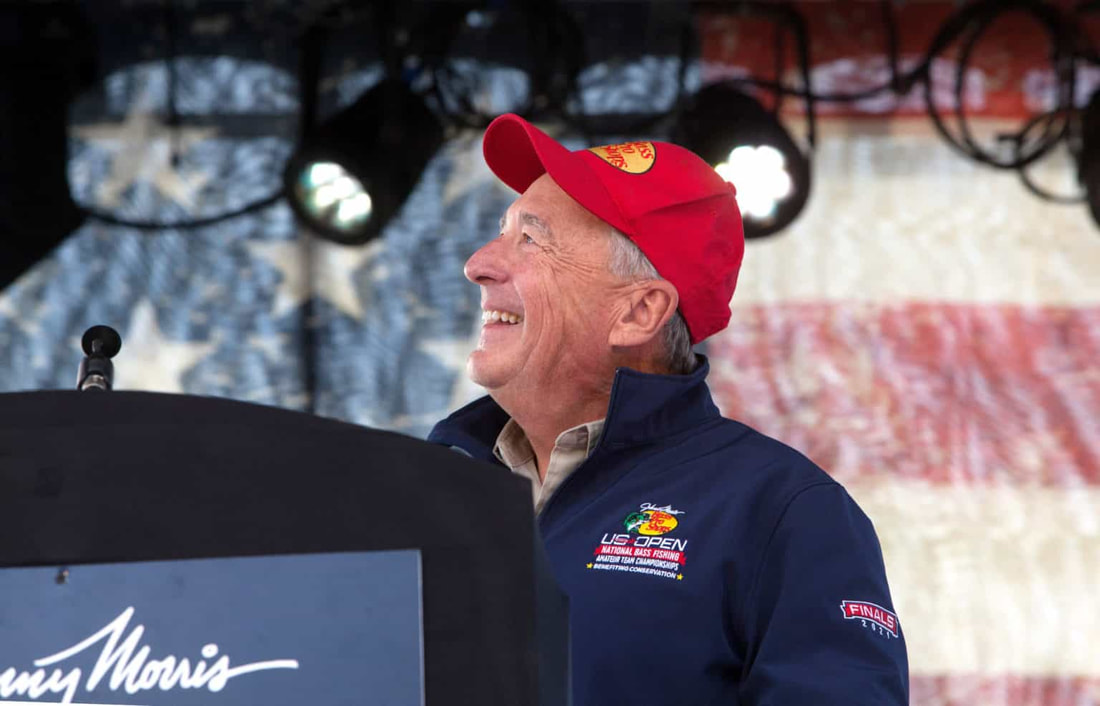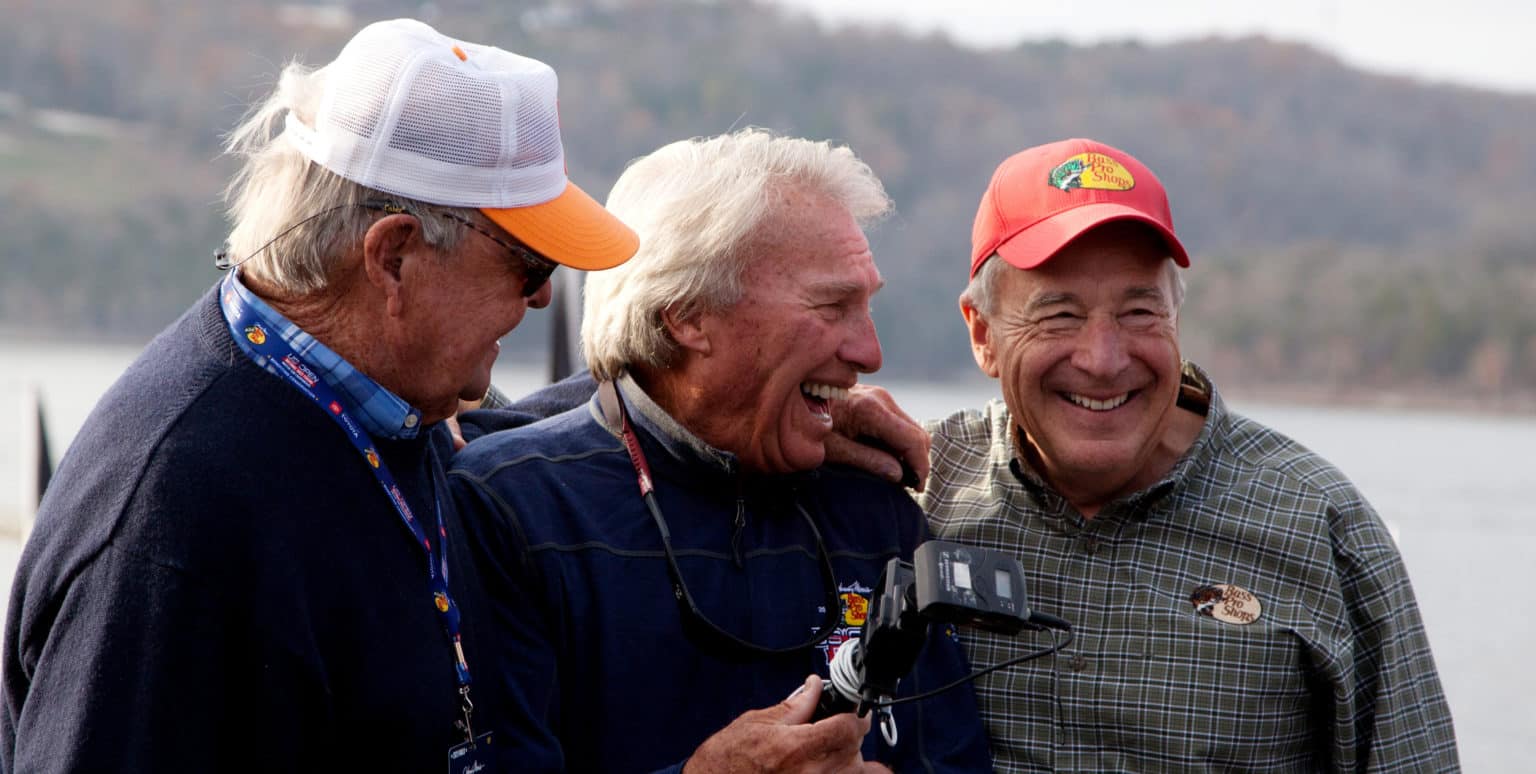Family history fuels Bass Pro Shops founder’s drive for conservation, Recovering America’s Wildlife ActBy KELLY BOSTIAN For the CCOF RIDGEDALE, Mo. – For three days in late November, in the scenic southwestern Missouri Ozarks, Johnny Morris reveled in some of the greatest joys of a life influenced by the clear waters of Table Rock Lake. The CEO and founder of Bass Pro Shops said that his Bass Pro Shops U.S. Open National Bass Fishing Amateur Team Championships was a lifetime in the making and tied together both the most important elements and people from the billionaire’s formative years and long career. Family, friends, fishing, country, and conservation were the main themes, sunup to sundown, at Long Creek Marina. A top prize of $1 million awarded to the best amateur fishing team, the largest ever of its kind, made the headlines. Morris handed over two $500,000 checks and the keys to two Toyota pickups and two 21-foot Nitro bass boats to the winning duo, a pair of college kids from Alabama. Two military veterans received new boats as well. Ten kids as young as 5 years old (with their parents), winners of a nationwide fishing video contest, also got new boats. After pro tour anglers helped the youngsters and their parents learn how to use their new boats, they fished a little tournament of their own. Morris awarded $5,000 per pound to the biggest fish. A 12-year-old from Florida walked away with a new boat and more than $15,000 for his biggest bass.
Two words tagged on that event title, “supporting conservation,” played heavily into that symbolic mix as well. Before a giant conservation donation announcement was aired, Morris took a half-hour out of his whirlwind weekend to sit down with a reporter to explain the importance of it, to reflect on its origins, and to talk about legislation now in front of Congress called the Recovering America’s Wildlife Act. “That’s why I’m glad you’re here,” he said. “It’s important to share the story about all the good things for fish and wildlife and habitat that can come from people working together.” A big win for fisheriesAt his iconic Big Cedar Lodge, overlooking the lake, Morris sat near the end of a long wooden table in a headquarters boardroom with notepads, folders, and binders piled in front of him. Like a kid ready to spill the beans on a Christmas surprise, Morris had a glint in his eye. “We’re going to present a check tomorrow for about $1.6 million to the National Fish Habitat Partnership,” he said. “I just found out the total yesterday.” Bass Pro Shops and Toyota matched the team entry fees from eight regional qualifying tournaments leading up to the Amateur Open. This would be the largest donation ever—by far—for the partnership, which has been around for years but was recognized by Congress in 2020 with the passage of the America’s Conservation Enhancement Act. “It’s coming at a great time for us with recognition by Congress and with projects needing to have a one-to-one match,” said Ryan Roberts, who manages the partnership under the Association of Fish & Wildlife Agencies. “We will be able to fund four, maybe five really large-impact projects.” Most hunters and anglers know that their hunting and fishing licenses support their state conservation agencies. Fewer understand how federal excise taxes on firearms and ammunition and fishing and marine purchases are used to support fisheries and wildlife projects, Morris said. He recognized long ago how funding through those excise taxes could be used creatively, and multiplied, through public-private partnerships, he said. “Years ago I was invited by President Ronald Reagan to take an appointment with the National Fish and Wildlife Foundation and that was really eye-opening to me,” he said. “They get some tax dollars and their charter is to raise $2 of private money to match every dollar of taxes spent. To me, that is a beautiful model.” Uniting is right It is a model he has continually encouraged. Look into the history of the Habitat Partnership and you’ll find one of its 20 partners is the non-profit Reservoir Fisheries Habitat Partnership. That group’s origins lie in restoration efforts at Table Rock. Those efforts came about chiefly as a result of coordination between state, federal and non-profit groups initiated by Morris, Roberts said. The fisheries partnership is not the only new-era conservation model with links to Morris.
Now on the table is the Recovering America’s Wildlife Act. Look into the background of the act and Morris turns up as co-chair of the Blue Ribbon Panel on Sustaining America’s Diverse Fish and Wildlife Resources. That group included national high-level representatives of conservation, sporting, energy, and business interests. The group recognized “a crisis in wildlife management” and recommended Congress use existing fees and taxes related to the petroleum industry to annually allocate $1.3 billion to state wildlife agencies. Versions of that very concept today are before the Senate Environment and Public Works and the House Natural Resource committees as the Recovering America’s Wildlife Act, said Naomi Edelson, National Wildlife Federation senior director of wildlife partnerships. More than 1,700 businesses and non-profit groups nationwide have signed on to support the bill. It has 32 Senate co-sponsors and 137 House co-sponsors, with more to come, she said. The Federation, the Association of Fish & Wildlife Agencies, and Theodore Roosevelt Conservation Partnership, among others, are bullish about the bill passing early in 2022. “When animals are listed on the Endangered Species Act it creates a financial burden and that comes back to the states, and that’s growing,” Morris said. “We have to find medicine to, No. 1, prevent critters from being listed and, No. 2, find a way to prevent money that sportsmen and women are paying from being depleted because there is so much burden on states to look after endangered species. That price tag was identified and it was about $1.3 billion.” History ties it together Among large black-and-white photograph reproductions framed and mounted on that boardroom wall, Morris turned to one he said illustrates his lifelong passion for conservation. The old photo shows a man and a woman kneeling next to a gun dog. A few quail lay across the woman’s leg. The 1948 photo is of his parents, John A. and Genny Morris. A much smaller framed version of the photo came as a Christmas gift from his father, he said. “It had a note with it. ‘Johnny these are four of the great joys in my life,’ and it said ‘your mom, Genny, my favorite bird dog, Mike, you three months from touchdown and a handful of feathers that made our day,’” he said. His parents settled in the Springfield, Mo., area in 1911 when white-tailed deer were scarce and wild turkeys were few. His parents embraced Conservation Department efforts, so from a young age he had an appreciation for the department’s work “When you talk about Johnny and you talk about Bass Pro Shops, conservation is core and the passion runs all the way to the center, family values, and love of the outdoors, that outdoor heritage,” Ziehmer said. Roberts doubled that sentiment and called Morris a rare visionary with a talent for uniting sometimes diverse interests like the flood-management-focused U.S. Army Corps of Engineers and a fishing community group. “On a global scale there aren’t many out there on his level that really thinks about the outdoors and the environment and importance of making it better for the next generation,” he said. For all the conservation successes and business successes of the past, Morris said he looks at the overall conservation picture now and remains positive. “This whole thing is emotional to me here this weekend because Table Rock was really the birthplace,” he said. “When I was 10, Table Rock Dam was built. I’ll never forget going to the open house with my grandpa and he was, well, not happy, because it flooded so many of our old fishin’ holes in the river.” But it also created what soon became the best bass fishing lake in the country. Fast forward 11 years and Morris was a young man in a boat with his father fishing an open tournament against a host of new pros, including, Bill Dance and Roland Martin, who placed first and second in that tourney. The event also was where he met Tom Mann, creator of Mann’s Jelly Worms, Carl Lowrance with his “little green box” fishfinder, and Midwest television angler Virgil Ward with his Bass Buster baits, among others. A desire was born to acquire all that gear and, soon thereafter, the idea to start a store in Springfield to help others who had a hard time finding those products. The rest, as they say, is history. A positive outlook
Looking forward, Morris said while contacts tell him chances for the Recovering Wildlife Act to pass look good, he has a positive outlook for the future of conservation in the United States Ziehmer, the Bass Pro conservation director said it succinctly. “Think of all the daunting challenges in the early 1900s,” he said. “The challenges have changed but many are just as daunting, whether it’s wildlife or fisheries or diseases or access to the outdoors for the public, whether they fish or hunt or not. I think our country continues to mature in the conservation realm,” he said. Morris said he sees renewed interest and conservation growth ahead. “The situation with Covid was sad, but it was a reset that got a lot of people back outdoors again. To me, I’m encouraged by people’s passion for the outdoors.” If one thing might need a boost it’s better communication and an understanding among more people what it takes to keep conservation going, how the funding comes together, and how projects come together, he said. “To achieve meaningful things in conservation it takes people reaching out to each other,” he said. “Communication is a challenge. The states can’t do it alone and the feds can’t just mandate things. When you look at most of the great success stories it does come about when people are reaching out to each other and find common-sense solutions.” Kelly Bostian is an independent journalist writing for The Conservation Coalition of Oklahoma Foundation, a 501c3 non-profit dedicated to education and outreach on conservation issues facing Oklahomans. To learn more about what we do and to support Kelly’s work, see the About the CCOF page.
0 Comments
Leave a Reply. |
Archives
May 2024
Categories
All
|
Conservation Coalition of Oklahoma
P.O. Box 2751
Oklahoma City, OK 73101
[email protected]
